Released Belgian Prisoner Thanks Release Efforts
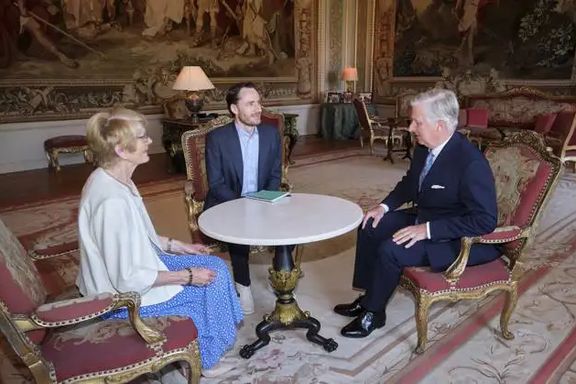
The Belgian aid worker exchanged with an Iranian terrorist last week wrote a letter to thank all those who mobilized his release.

The Belgian aid worker exchanged with an Iranian terrorist last week wrote a letter to thank all those who mobilized his release.
Olivier Vandecasteele said that after 15 months of arbitrary detention he was finally released and is doing fine.
“Having had no direct access to outside information for the entire duration of my detention in solitary confinement (i.e., 13 consecutive months), I was miles away from imagining the extent of the citizen mobilization - which all of you have worn day after day - across the country and across borders,” read his letter, published on Twitter.
He also thanked the efforts of the Belgian government while calling on governments to continue efforts to release further hostages held around the world.
“Let us bring active support to projects that carry the values of humanity, solidarity, and hope. This world, which is unfortunately often terribly cynical, needs it now more than ever,” he wrote.
Activists were outraged over an Oman-brokered swap deal according to which Iranian diplomat Assadollah Asadi who was convicted of terrorism, was freed in exchange for Vandecasteele.
Assadi, a former attaché at the Iranian embassy in Austria who was convicted of plotting to bomb a gathering of the exiled opposition group Mujahedin-e Khalq Organization (MEK) near Paris on June 30, 2018, was released and arrived in Tehran on Friday.
Vandecasteele, who was detained last year and sentenced to 40 years in prison and 74 lashes for alleged “spying and cooperation with the United States, money laundering and smuggling $500,000 out of Iran,” was also released as part of the deal.

A regime member of parliament claims wearing the hijab is a timeless commandment by God.
Morteza Aghatehrani, the chairman of the Parliament's Cultural Committee, went as far as to say that all legislation should follow the orders of God.
His remarks come amidst mass rebellion against regime mandated hijab, with women refusing to wear them in public and burning them on the streets.
Meanwhile, Hassan Rahimpour Azghadi, an ultraconservative commentator who usually speaks on Iranian national television as a member of the Cultural Revolution Council, claimed on Thursday that "the removal of hijab is because they [enemies] want to return us to the pre-revolution era.”
He further claimed that the 'enemies', referring to the likes of the US and Israel, want to turn the celebrities of the Shah’s time into heroes for today's generation.
The regime continues to enforce the hijab both covertly and overtly, with the likes of hijab patrols and surveillance techniques across the country as it fights the ongoing hijab rebellion, sparked by the death in morality police custody of Mahsa Amini. The 22-year-old was arrested for the 'improper' wearing of her hijab in September, sparking a nationwide uprising.

Disclaimer: The following report was published based on reports in the Iranian media on Thursday that they later changed and admitted their news was wrong.
An American hostage in Iran, Siamak Namazi, has informed his family that Iranian authorities have told him he will be freed soon, media in Iran reported Thursday.
UPDATE - Later on Thursday Shargh newspaper in Tehran quoted Namazi's lawyer as saying that he did not tell his family about his possible release and the news was totally false.
The news was brief and there were no details. It has not been confirmed by the US government or directly by the family, but the development comes after multiple reports of talks between Tehran and Washington to release Americans held by the Islamic Republic in exchange for Iran’s frozen funds abroad.
Iran International reported last week that talks were taking place to release Iranian funds held in South Korea in exchange for possibly three Americans who were arrested over the past eight years and convicted on unsubstantiated charges in sham trials, without due process of law.
A source with direct knowledge of the talks had told Iran International that talks had made progress and focused on Iranian funds held in Iraq and South Korea.
Around $7 billion is held by two South Korean banks, due to US financial sanctions on Iran. The funds represent Seoul’s debts to Tehran for importing oil before US sanctions fully kicked in in May 2019.
Those funds would be released in exchange for the hostages while more than $10 billion held by Iraq due to US sanctions could be released in exchange for Tehran to show more “flexibility” in nuclear talks, the source said.
US sanctions have driven Iran’s economy into a serious crisis, with the country unable to generate much oil export revenues. It has spent almost all of its foreign currency reserves, with inflation nearing 70 percent and the national currency having lost half its value in less than a year.
Nour News in Tehran affiliated with the National Security Council posted a cryptic tweet Thursday saying that Iran has tried for a long time to arrange a “prisoner exchange” out of its “humanitarian concerns” but the United States unnecessarily delayed an agreement. The tone used seems to indicate an agreement has now been reached.
Currently there are three dual nationals with American citizenship and two individuals with US permanent residency held by Iran on trumped-up charges of espionage.
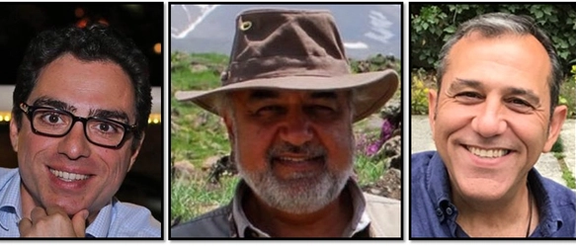
The three citizens are Siamak Namazi, Emad Sharghi and Morad Tahbaz, while Jamshid Sharmahd and Shahab Dalili are US permanent residents.
In a White House briefing on Wednesday, national security coordinator John Kirby was asked about the recent trip of Oman’s Sultan to Tehran as a sign of indirect talks. Kirby responded that “We have — we have multiple ways of communicating with the Iranians. I’m not really sure I understand what you’re getting at.”
However, it is widely believed in Tehran that the Omani ruler, Sultan Haitham bin Tariq al-Said’s visit was primarily a mediating mission. Oman has played the role of a go-between with Tehran on several occasions.
Axios recently reported that Brett McGurk, President Joe Biden’s senior Middle East adviser, took a low-profile trip to Oman earlier this month for talks on possible diplomatic outreach to Iran.
This was an indirect confirmation of Iran International’s earlier report about ongoing talks on release of Iran’s blocked funds.
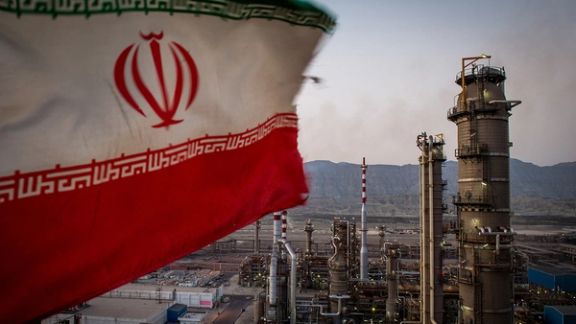
Two online media outlets in Iran have asked the question that is on everyone’s mind: Where is the oil export money the government claims to be earning since 2021.
There is little doubt the Iranian regime succeeded in boosting its oil exports despite US sanctions since late 2020, coinciding with Joe Biden’s victory in the presidential elections and his policy of negotiating a return to the 2015 JCPOA nuclear deal.
Former President Trump’s sanctions had reduced Iran’s crude exports to around 200,000 barrels per day, but since 2021 Iran has been shipping at least 600,000 barrels.
Industry monitoring firms, such as TankerTrackers, Vortexa, Kpler, and other sources estimate Iran exported anywhere from 810,000 to 1.2 million barrels of crude oil per day in the second half of 2022. Tehran keeps the export volume secret, but top officials constantly claim revenues are increasing, without providing details, apparently to protect buyers who are violating US sanctions.
Nevertheless, in the past two years the country’s economic crisis has worsened and many ask where the oil money is and why the revenues do not help the situation. The Iranian currency has more than halved in value in one year and recent reports say annual inflation is approaching 70 percent.
Farazdaily, a website in Tehran posed the question to two members of parliament last week and they did not deny that more oil is being shipped – primarily to China – but they had no answer about why the revenues do not have a positive impact on the economy.
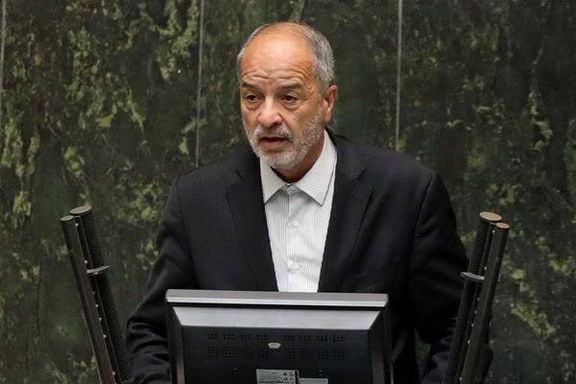
One of the lawmakers who spoke to FarazDaily, Yaghoub Rezazadeh, first secretary of parliament’s National Security and Foreign Policy Committee claimed that Iran’s current economic problems are partly caused by sanctions in general, that makes trade with other countries hard and exports non-profitable.
If Iran exported an average of 800,000 bpd even at discounted price of around $75 per barrel in 2022, its revenues just from shipping crude oil would have been $22 billion. In addition, there is the export of oil products, such as gasoil, gasoline, and other products, which officials have said generate revenues almost equal to crude exports. Therefore, Iran should have had at least around $35 billion income, a sum that would have financed most of its annual budget.
According to the official budget bill, 55-percent of the government’s operational budget this year is supposed to be generated by oil exports.
In this scenario, the government would not need to print money, which is the reason why inflation is approaching 70 percent and the national currency is dropping.
The puzzle about Tehran’s oil revenues is that its main buyer China might not be paying for the oil in US dollars or other hard currencies, but instead bartering the oil with goods or in yuan. Iran might also be offering much larger discounts that what observers estimate. The third factor may be the cost of the illicit exports in additional shipping fees and payment to middlemen to repatriate the cash amid stringent US banking sanctions on Iran.
In the worst-case scenario, Iran might be collecting far less than $20 billion in all its energy exports.
Rezazadeh actually admitted that Iran has a hard time repatriating the oil export revenues and other debts from China, Iraq, Turkey, Syria, Afghanistan and some neighboring countries in the Persian Gulf region.
Referring to sanctions he said, “Naturally, with all these impediments we are not able to bring back proceeds form oil exports. Many countries owe us money that we cannot repatriate. We have sold oil, natural gas and food to other countries without collecting the revenues.”
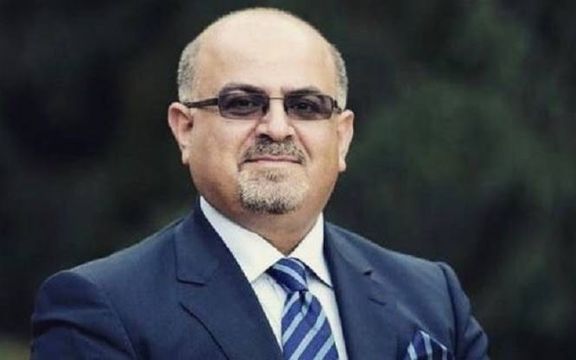
An Iranian lawyer says the Iranian Revolutionary Court is not qualified to investigate the charges of two imprisoned journalists who covered the death of Mahsa Amini.
“According to the constitution, the branches of the Revolutionary Court do not have the jurisdiction to deal with political and journalistic cases,” said Arash Keikhosravi.
He said that according to law, Elahe Mohammadi and Niloufar Hamedi should have been released by now and their case should have been referred to one of the branches of the Criminal Court.
Their case has to be investigated in the presence of a jury in an open court, so that justice can be served, he added after the first hearing was held Monday in Tehran behind closed doors.
The two journalists have been charged with propaganda against the regime and conspiracy to commit acts against national security, which could bear death sentences.
Hamedi managed to visit Mahsa Amini in Tehran’s Kasra hospital and broke the news of her grave condition after being taken into the custody of the morality police three days earlier for wearing her hijab “improperly”. Amini was in a coma at the time.
Mohammadi, likewise, managed to travel to Amini’s hometown of Saqqez in western Iran to report on her funeral on September 17, which thousands attended.
The US State Department has called the "sham" trial a "mockery of justice" and shows the Islamic Republic's fear of journalists.
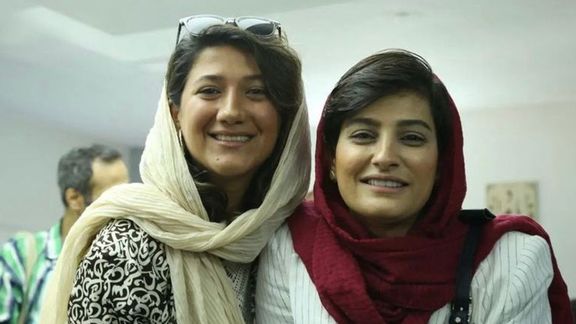
Reporters Without Borders (RSF) condemned the trials of Niloofar Hamedi and Elahe Mohammadi who first reported the death in custody of Mahsa Amini in September.
Calling the trials “sham” in a statement Tuesday, RSF said the two journalists who have been in detention since a few days after Amini’s death should be freed at once instead of facing possible death sentences.
The two journalists have been charged with propaganda against the regime and conspiracy to commit acts against national security, which could bear death sentences.
“The fact that Niloofar Hamedi and Elaheh Mohammadi were unable to see their lawyers, even a few days before their trials, confirms that this is travesty of justice whose sole aim is to legitimise the persecution of these two journalists. We demand their immediate release,” Jonathan Dagher, head of RSF’s Middle East desk, said.
In a tweet Tuesday, RSF also said banning the lawyers of the two journalists from speaking at their hearings was “further proof of the judicial farce against the two journalists.”
Hamedi, managed to visit Mahsa Amini in Tehran’s Kasra hospital and broke the news of her grave condition after being taken into the custody of the morality police three days earlier for wearing her hijab “improperly”. Amini was in a coma at the time.
Mohammadi, likewise, managed to travel to Amini’s hometown of Saqqez in western Iran to report on her funeral, September 17, which thousands attended.
The lawyers for Niloofar Hamedi, a reporter of the reformist Shargh daily, and Elahe Mohammadi, of the reformist Ham-Mihan newspaper, were banned from speaking at the 1st hearings.,” RSF tweeted Tuesday.
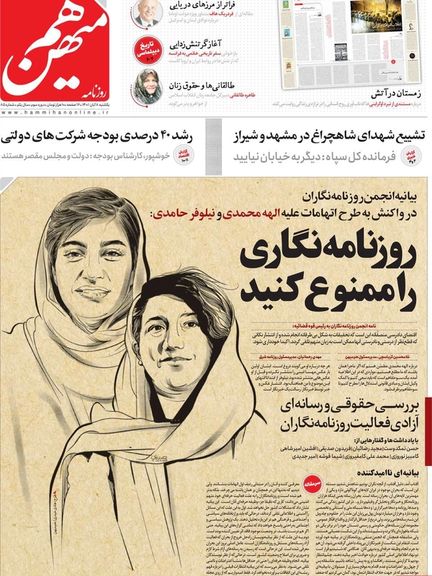
The first session of Mohammadi’s trial presided by the notorious judge Abolghasem Salavati was held behind closed doors at Branch 15 of the Revolutionary Court of Tehran on Monday. Hamedi’s hearing was held on Tuesday by the same judge and in the same manner. Lawyers of the two journalists were not allowed to speak.
Hamedi’s husband, Mohammad-Hossein Ajorlou who is a sports journalist himself, in a series of tweets Tuesday confirmed that Hamedi’s lawyer had not been given an opportunity to speak and said family members, including himself, were not allowed in the courtroom. According to Ajorlou’s tweet the date for the next hearing has not been set.
The Telegram channel of the ultrahardliner Raja News claimed that “anti-Iranian media” are trying to “reduce” the arrest of the two journalists to their coverage of Mahsa Amini’s death.
“But reliable information indicates that Niloofar Hamedi and Elaheh Mohammadi had participated in training courses of institutions that seek the overthrow [of the Islamic Republic] and had connections with foreign intelligence services,” Raja News which is affiliated to the ultraconservative Paydari Front wrote.
In October, Iran's intelligence ministry and SAS, the intelligence organization of the Revolutionary Guards (IRGC) accused Mohammadi and Hamedi of being CIA agents. “Using the cover of a journalist, she was one of the first people who arrived at the hospital and provoked the relatives of the deceased and published targeted news,” they said in a joint statement.
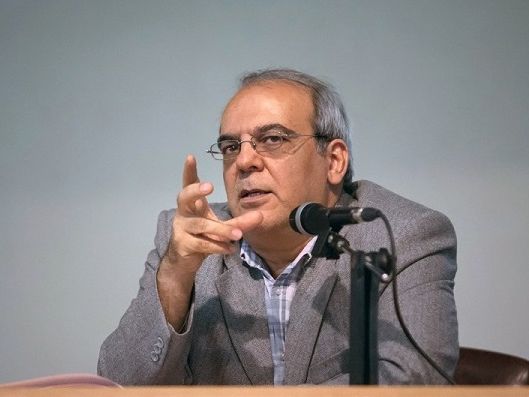
Abbas Abdi, a reform bloke politician said in a May 23 tweet that the government twists charges against dissidents to avoid open trials and demanded that the two journalists be tried publicly according to article 165 of the Iranian Constitution.
The Iranian Constitution stipulates that trials of political prisoners and journalists should be public and with the presence of a jury.